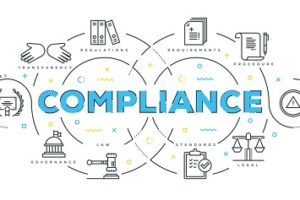Small businesses are vital to the American economy, but they can have a difficult time absorbing regulatory compliance costs that larger businesses take in stride. For this reason, Congress created the Small Business Regulatory Enforcement Fairness Act (SBREFA). The SBREFA requires federal agencies to analyze the economic impact of new rules on small businesses and to provide a mechanism for small businesses to influence the rulemaking process.
In addition to amplifying the voice of small business in the regulatory process, the SBREFA imposes a duty on federal agencies, including the U.S. Environmental Protection Agency (EPA) and the Occupational Safety and Health Administration (OSHA), to provide compliance assistance and enforcement relief for small businesses.
Small Business Compliance Assistance
Federal agencies, including the EPA and OSHA, must provide compliance assistance to small businesses in the form of:
Compliance Guides. Regulatory agencies must publish compliance guides for all rules with a significant small business impact. These guides must explain in plain language how the firms can comply with the regulations. They are typically available on the agency’s webpage.
If a small business is cited for a violation of a regulation, the court review may include the content of the small business compliance guide in assessing the reasonableness of the proposed penalty.
Compliance Inquiries. Agencies also are required to establish a system for addressing compliance inquiries from small businesses. The guidance provided by an agency can be used as evidence to assess the reasonableness of proposed penalties, fines, or damages assessed against a small entity.
Small Business Development Centers. To step up compliance assistance, the SBREFA requires the Small Business Development Centers (SBDCs) to be used as a point of distribution for compliance assistance. A listing of SBDCs are available by calling the U.S. Small Business Administration (SBA) at 800-U-ASK-SBA.
Enforcement Relief for Small Businesses
In order to ensure that small businesses are treated fairly during an agency’s enforcement process, the SBREFA created several mechanisms for enforcement relief.
Complaint Process. Under the SBREFA, small businesses may register complaints about enforcement actions with the SBA Ombudsman, or with a Small Business Regulatory Fairness Board. The Small Business and Agriculture Regulatory Enforcement Ombudsman is charged with receiving comments from small businesses concerning aggressive enforcement-related activities conducted by agency personnel. The Ombudsman reports annually to Congress on agency enforcement efforts and their impact on small businesses.
Regional Boards. Regional Small Business Regulatory Fairness Boards have been established in each of SBA’s 10 regions to advise the Ombudsman on matters of concern to small business relating to the enforcement activities of agencies. The Boards are composed of small business owners and operators, who are appointed by the SBA administrator for terms no longer than 3 years.
Penalty Policy. Under the SBREFA, each agency must establish a policy to provide for the reduction and, under appropriate circumstances, for the waiver of civil penalties for violations of statutory or regulatory requirements by a small business.
Equal Access to Justice. The SBREFA expands the ability of small businesses under the 1980 Equal Access to Justice Act to recover attorneys’ fees incurred during litigation with the government. In administrative and judicial proceedings, if the government’s demand is unreasonable when compared to the judgment or decision, the small business is awarded attorneys’ fees and other expenses related to defending against the action.

